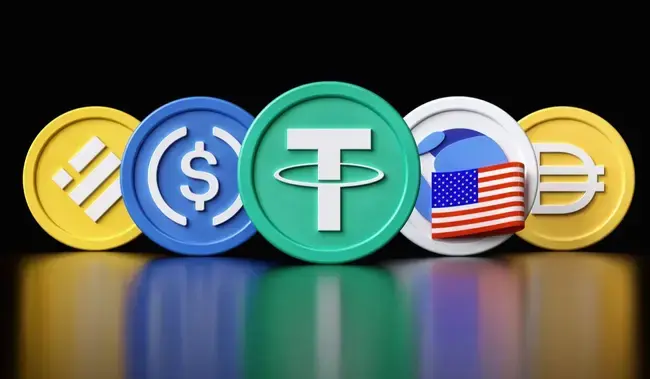Highlights:
- Bank of England warns stablecoins could weaken trust in traditional national currencies.
- Bailey urges central banks to rethink reserve roles as stablecoin use rapidly expands.
- Amundi fears the GENIUS Act may harm global finance and weaken the U.S. dollar.
The Bank of England has expressed concern that the rising use of stablecoins might erode confidence in traditional currencies. Speaking at the Andrew Crockett Memorial Lecture, Governor Andrew Bailey highlighted the need for central banks to closely monitor shifts in payment systems. He said if stablecoins begin to act as a new type of money, it’s essential to find ways to maintain the unity and trust in the overall monetary system.
Bank of England Governor Andrew Bailey warns that the rise of stablecoins risks undermining the public’s trust in money as experts warn of the threats posed by the expanded use of dollar-backed cryptocurrencies https://t.co/qQumyIgVvS
— Bloomberg (@business) July 3, 2025
Bailey explained that as stablecoins continue to grow in use, it’s important for central banks to start rethinking the role of reserve currencies in the global system. He said that instead of simply backing a country’s currency, official reserves might now be more important for managing financial stress. “They may be needed to support financial system liquidity in situations of extreme stress,” he said.
Bailey called these changes a challenge for central banks, especially if stablecoins become popular without proper regulation. He said future efforts should clearly define the role of reserve currencies in systems where new payment methods might avoid traditional rules.
Bailey Raises Concerns as US Pushes GENIUS Act Forward
Bailey’s comments come as U.S. lawmakers recently advanced a new stablecoin bill called the GENIUS Act, which passed the Senate last month. The bill aims to regulate stablecoins and provide legal clarity for the industry. Supporters believe it could boost the dollar’s strength by increasing the use of dollar-backed digital coins globally. Still, some analysts caution that widespread adoption of digital dollars could increase dependence on the US, raising concerns of “digital dollarization.”
Some regulators are raising concerns about the uncoordinated adoption of stablecoins. They say it could fragment the global financial system. Without common standards, private tokens might run outside central bank control. This could weaken monetary policies and disrupt financial stability across countries. Officials are also examining how to ensure stablecoins stay reliably valued while complying with legal and risk requirements. A key question is whether these digital assets should be integrated into the formal monetary system or managed through separate frameworks.
Europe’s Largest Asset Manager Warns U.S. Stablecoin Bill May Harm Global Economy
Amundi, a major European investment firm, warned that the U.S. GENIUS Act could hurt the global economy. The firm’s chief investment officer, Vincent Mortier, said the bill might turn out to be either very smart or very harmful. He explained that the U.S. could benefit because stablecoins backed by the dollar would lead to more buying of U.S. Treasury bonds. This helps the U.S. deal with its growing debt.
However, Amundi warned that this approach might create broader risks. By promoting the global use of digital dollars, the bill could unintentionally establish a new alternative to traditional U.S. dollars. This, the firm argues, may end up weakening the dollar’s overall strength and pose challenges not only for the U.S. but for the global financial system as well.
EUROPE’S LARGEST ASSET MANAGER AMUNDI WARNS U.S. STABLECOIN RULES MAY DISRUPT GLOBAL PAYMENTS
Amundi cautions that overly permissive U.S. stablecoin policies—especially if they allow interest-bearing features—could destabilize the global payment system. By drawing deposits away…
— Naeem Aslam (@NaeemAslam23) July 3, 2025
Best Crypto Exchange
- Over 90 top cryptos to trade
- Regulated by top-tier entities
- User-friendly trading app
- 30+ million users
eToro is a multi-asset investment platform. The value of your investments may go up or down. Your capital is at risk. Don’t invest unless you’re prepared to lose all the money you invest. This is a high-risk investment, and you should not expect to be protected if something goes wrong.






